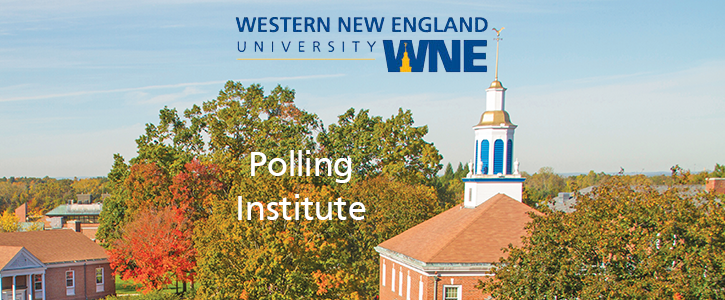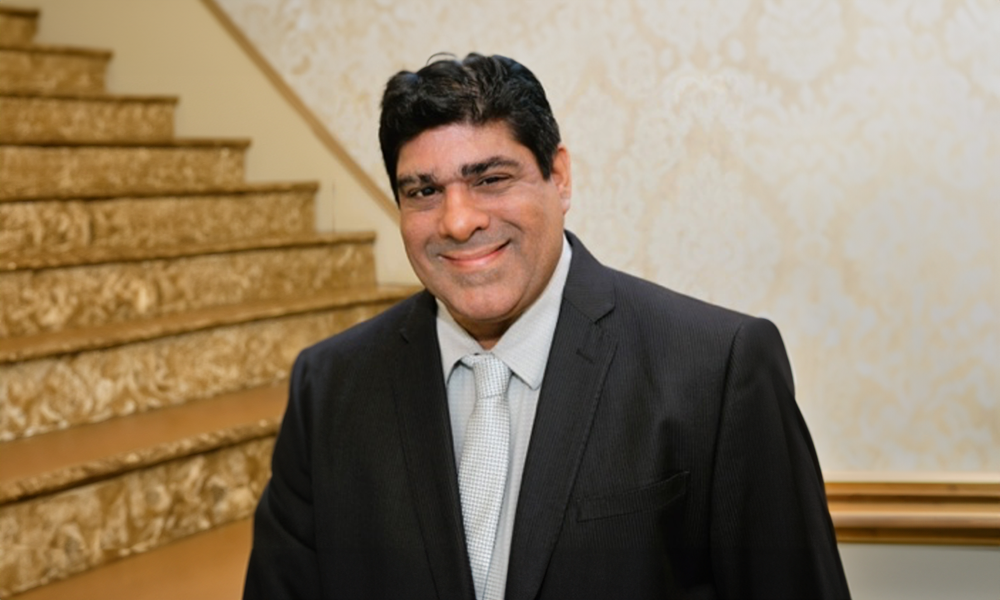Even with vaccines against COVID-19 becoming accessible to a larger portion of the public, Massachusetts residents are cautious about returning to pre-pandemic activities, according to the latest survey from the Western New England University Polling Institute.
The telephone survey of 415 adults, conducted March 1-31, found that 44 percent were still very or somewhat worried about contracting COVID-19, down from 64 percent in the last Polling Institute survey conducted Oct. 22 through Nov. 24, 2020. Fifty-four percent said they are not very worried or not at all worried, up from 32 percent in the fall survey.
The current level of worry did not vary significantly based on whether a respondent had received a vaccine to protect against COVID-19. Thirty-four percent of the sample reported having received at least one dose of a vaccine. Among the vaccinated group 45 percent were still very or somewhat worried about contracting the virus, while 52 percent said they were not very or not at all worried. Among adults who said they had not yet received a vaccine, 44 percent were very or somewhat worried and 54 percent said they were not very or not at all worried.
The survey, which has a margin of sampling error of plus or minus six percentage points, also found:
- Sixty percent of adults said they strongly or somewhat support the return of elementary school students to public school classrooms five days a week, which is underway in many schools across the state this week. Twenty-nine percent of respondents said they strongly or somewhat oppose the idea.
- A majority of residents gave the state and Governor Charlie Baker a grade of B or C for the rollout of the vaccination plan so far. Baker's overall job approval rating fell six points to 62 percent among all adults compared to the October-November survey, and the approval rating for the governor's handling of the state's response to the COVID-19 pandemic fell five points, to 62 percent.
- Support remained high for cities and towns requiring masks in public places, with 85 percent backing the idea, 13 percent opposed, and two percent undecided. Ninety percent supported requiring masks in public places in the fall survey.
- Among survey respondents who had yet to receive a vaccine, 68 percent said they would be very or somewhat likely to get the vaccine if it was available to them today, and 29 percent said they would be very or somewhat unlikely. Among all respondents to the October -November survey, 59 percent said they would be very or somewhat likely to get the vaccine, while 38 percent said they would be very or somewhat unlikely.
- Perceptions of the safety of engaging in public activities ranging from dining indoors in restaurants to working out in gyms with masks and social distancing shifted slightly in the direction of greater perceived safety, but about half of all adults still view those activities as unsafe.
Tim Vercellotti, director of the Polling Institute and a professor of political science at Western New England University, said the survey results depict a state that may be ready for life to return to some semblance of pre-pandemic activity, but that many adults are cautious about rushing too quickly to do so.
"More people are willing to get vaccinated, and there is some sense of diminished threat from COVID-19," Vercellotti said. "But people still remain worried about contracting the virus, and a significant number believe that the pandemic is far from over."
When asked how long it would be before daily life could return to the way it was before the pandemic, 21 percent said "in more than a year," down eight points from the October-November survey. Eighteen percent said a year, 16 percent chose seven to 11 months, 18 percent said four to six months, and nine percent said three months or less, with the figures inching slightly in the direction of a shorter duration compared to the fall survey. Eight percent volunteered that their lives would never return to the way they were before the pandemic, compared to three percent in the fall survey.
While the survey found that a majority of adults supported allowing students in kindergarten through fifth grade to return to classrooms five days a week, views varied significantly by gender, race/ethnicity, and age. Sixty-six percent of men and 54 percent of women strongly or somewhat supported the idea. Sixty-two percent of white respondents strongly or somewhat supported the policy, and 26 percent were somewhat or strongly opposed. Non-white respondents, which included African-Americans, individuals identifying as Latino or Hispanic, Asian-Americans, Native Americans, and people identifying with more than one race, were almost evenly divided about the idea. Forty-seven percent were strongly or somewhat supportive, and 50 percent said they were strongly or somewhat opposed. Among adults ages 18 to 39, 58 percent supported giving elementary students the chance to return full time, compared to 70 percent among respondents ages 65 and older.
Thirty-four percent of adults and 37 percent of registered voters in the sample reported having received at least one dose of a COVID-19 vaccine, and the percentage across groups varied by political party, gender, race/ethnicity, and age. Forty-nine percent of Democrats said they had received at least one dose, compared to 22 percent of Republicans and 30 percent of unenrolled voters. Thirty-eight percent of women and 29 percent of men said they had received at least one dose of a vaccine. Thirty-four percent of white respondents and 25 percent of non-white respondents said the same. Not surprisingly, given that the state's phased introduction of vaccinations has been based in part on age, respondents 65 and older had the highest rate of vaccination, with 69 percent indicating they had received at least one dose.
Survey respondents overall gave Baker and the state passing grades for their management of the vaccination program, but only 11 percent gave Baker an A, and only nine percent gave the state an A. Thirty-four percent of adults gave Baker a B, 31 percent a C, 12 percent a D, and six percent a failing grade. Thirty-five percent of adults gave the state a B and 35 percent awarded a C, while 10 percent gave a D, and six percent a failing grade.
Baker and the state received higher marks from survey respondents who had received at least one dose of a COVID-19 vaccine, and grades were higher as people reported having heard or read more information about the state's vaccination program. Among adults who had received at least one dose of a vaccine, Baker received an A from 12 percent and a B from 42 percent, while among those who had not yet been vaccinated 11 percent gave Baker an A and 29 percent gave him a B. Among survey respondents who had heard or read a lot of information about the vaccination program, 17 percent gave Baker an A and 36 percent gave Baker a B. The governor received an A from only six percent and a B from 31 percent of respondents who reported reading or hearing little or no information about the program.
Vercellotti noted that while Baker's consistently strong job approval rating has dipped in the latest survey, the results suggest that as people receive the vaccine and as they hear more about the vaccination program, views about Baker seem to become more positive. "The deterioration in Baker's job approval rating may be temporary," Vercellotti said. "A lot depends on his continued management of the vaccination effort and the state's overall response to COVID."
The Polling Institute found that slightly higher percentages of adults perceived some public activities as safer than respondents had in the October-November survey. Forty-two percent of respondents to the latest survey said that, with masks and social distancing, watching a movie in a movie theater would be very or somewhat safe. Only 31 percent voiced a similar view in the fall survey.
Views also improved somewhat regarding attending a service in a church, synagogue, mosque or other place of worship with masks and social distancing. Forty-six percent viewed the activity as very or somewhat safe, compared to 39 percent in the October-November survey. Shifts toward perceived greater safety were slightly smaller for three other activities: dining inside a restaurant, working out in a gym or health club, and traveling on an airplane. Across all five activities, however, about half of respondents still viewed them as very or somewhat unsafe.
"Perception of risk for these activities has softened somewhat since our last survey, but a lot of people still view these as potentially dangerous undertakings," Vercellotti said.
Having received at least one dose of a vaccine did not appear to be related to viewing the public activities as less risky compared to those who had not received a vaccine. In fact, survey respondents who had not been vaccinated were in some cases more likely to view the activities as safe. For example, 45 percent of vaccinated respondents viewed dining in a restaurant as very or somewhat safe, compared to 55 percent of adults who had not yet been vaccinated.
Vercellotti noted that political partisanship, gender, and age might be contributing to the differences as well. Democrats, women, and older adults were more likely to report having been vaccinated than Republicans, men, and younger adults, and Democrats, women, and older adults were also often less likely to view public activities as safe. "At least at this early stage in the vaccination process, having a vaccine may not determine your assessment of risk of an activity," Vercellotti said. "Other characteristics, including partisanship, gender, and age, may be more strongly associated with perceived safety of public activities."
METHODOLOGY
The Western New England University Polling Institute conducted a telephone survey using live interviewers March 1-31, 2021. Western New England University sponsored and funded the study. The survey sample consists of telephone interviews in English only with 415 adults ages 18 and older drawn from across Massachusetts using random-digit-dialing of landlines and cell phones. The sample yielded 377 adults who said they are registered to vote in Massachusetts. Interviewers at the Polling Institute dialed household telephone numbers, known as "landline numbers," and cell phone numbers using random samples obtained from Dynata of Shelton, CT. In order to draw a representative sample from the landline numbers, interviewers alternated asking for the youngest adult male or the youngest adult female age 18 or older who was home at the time of the call. Interviewers dialing cell phone numbers interviewed the respondent who answered the cell phone after confirming three things: (1) that the respondent was in a safe setting to complete the survey; (2) that the respondent was an adult age 18 or older; and (3) that the respondent was a resident of Massachusetts. The sample of all adults consisted of 138 interviews completed on landlines, 266 interviews completed on cell phones, and an additional 11 questionnaires completed by cell phone respondents who opted to take the survey online instead of over the phone. The landline, cell phone, and online data were combined and weighted to reflect the adult population of Massachusetts by gender, race, age, education, and county of residence using U.S. Census estimates for Massachusetts. The data also were weighted to adjust for cell phone and landline usage based on state-level estimates for Massachusetts from the National Center for Health Statistics, and political party registration using statewide voter registration figures from the Massachusetts Secretary of the Commonwealth.
All surveys are subject to sampling error, which is the expected probable difference between interviewing everyone in a population versus a scientific sampling drawn from that population. The margin of sampling error for a sample of 415 adults is +/- 4.7 percent at a 95 percent confidence interval. Taking into account a design effect of 1.9 for the weighting of the sample to estimates for the adult population of Massachusetts, the full margin of sampling error is +/- 6.4 percent (the margin of sampling error of 4.7 percent multiplied by the square root of the design effect), rounded down to 6 percent for purposes of this report. Thus if 62 percent of adults said they approve of the job that Charlie Baker is doing as governor, one would be 95 percent sure that the true figure would be between 56 percent and 68 percent (62 percent +/- 6 percent) had all adults in Massachusetts been interviewed, rather than just a sample. Sampling error increases as the sample size decreases, so statements based on various population subgroups are subject to more error than are statements based on the total sample. Sampling error does not take into account other sources of variation inherent in public opinion studies, such as non-response, question wording, or context effects.
Established in 2005, the Western New England University Polling Institute conducts research on issues of importance to Massachusetts and the region. The Institute provides the University's faculty and students with opportunities to participate in public opinion research. The Institute is a charter member of the Transparency Initiative, sponsored by the American Association for Public Opinion Research. The Transparency Initiative supports greater openness in the reporting of survey research methodology. Additional information about the Polling Institute is available from Dr. Tim Vercellotti, director of the Polling Institute, at polling@wne.edu.





